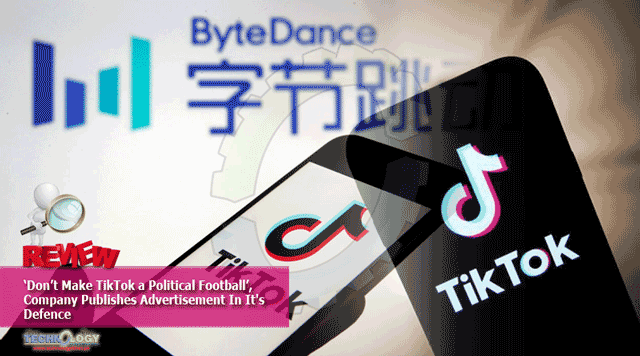Video-sharing giant TikTok appeal ban in India may have been a major setback but the Chinese-owned company has found itself increasingly embroiled in similar complications across the world in some of its major markets.

Apart from India, the United States, Australia, and even Pakistan have taken a hard stance on the app amidst growing geopolitical and data security machinations. While the US views the app as a “national security risk,” Australia says it is scrutinising it for privacy risks and Pakistan has threatened it with a banon charges of obscenity and vulgarity.
The Ministry of Electronics & IT (MeitY), while announcing the ban on 29 June had stated that the apps have “engaged in activities which is prejudicial to sovereignty and integrity of India, defence of India, security of state and public order.”
The pushback against the app has now elicited a strong appeal from TikTok. It published a full-page advertisement in leading Australian dailies with the message “Don’t make TikTok a political football.”
The Quint takes a look at the video app’s growing global troubles around the world.
United States
A day after the Indian government issued an order banning 59 Chinese appsincluding TikTok, the United States’ telecom regulator announced, on 30 June, that it has designated Huawei and ZTE as “national security threats.”
Two weeks after the action against Huaweei and ZTE, Reuters reported on 16 July that White House economic adviser Larry Kudlow told reporters a move by TikTok to leave Beijing ByteDance Technology Co, would be a better option than a ban on the app, which was threatened by State Department Secretary Mike Pompeo earlier this month.
“We haven’t made final decisions but…I think TikTok is going to pull out of the holding company which is China-run and operate as an independent American company,” Kudlow said.
President Donald Trump’s chief of staff said on 15 July that the administration is studying the national security risks of social media applications including TikTok and WeChat.
Australia
According to Reuters, Australia is scrutinising the popular Chinese-owned social media TikTok platform for any risks it may pose to users from around potential foreign interference and data privacy issues.
Prime Minister Scott Morrison said his government was “having a good look” at TikTok, which has also fallen under US scrutiny for “national security risks.”
Speaking with a radio station in Melbourne on 17 July, Morrison said, “If we consider there is a need to take further action than we are taking now, then I can tell you we won’t be shy about it.”
In a move that quite literally made front page ‘news’, TikTok took out front page advertisements to appeal against a ban by the government.
Retuers reported, TikTok Australia general manager Lee Hunter, who was recruited from Google in June, has written to Australian politicians saying TikTok was “being used as a political football.”
It was “critical you understand that we are independent and not aligned with any government, political party or ideology,” the letter said, adding TikTok Australia’s data was stored securely in Singapore and the United States.
Pakistan
Pakistan, too, has found reason to banish the app from its cyberspace but owing to reasons different from Australia, India and the United States.
Pakistan’s telecommunication regulator has issued a “final warning” to TikTok appeal over allegations of immoral, obscene and vulgar” content while banning Bigo, a similar video-sharing app based in Singapore. Bigo is among the 59 apps that have been banned in India as well.
On 22 July, Pakistan Telecommunication Authority said it had earlier raised the allegations with both companies and had received replies. However, the “responses of these companies was not satisfactory,” PTA’s statement said.
“Therefore … PTA has decided to immediately block Bigo and issue final warning to TikTok to put in place a comprehensive mechanism to control obscenity, vulgarity and immorality through its social media application,” said a government statement,
According to a report by The Associated Press, the Pakistan Telecommunications Authority said the content on the two platforms could have “extremely negative effects on the society in general and youth in particular,” without elaborating.
Originally published at : thequint
